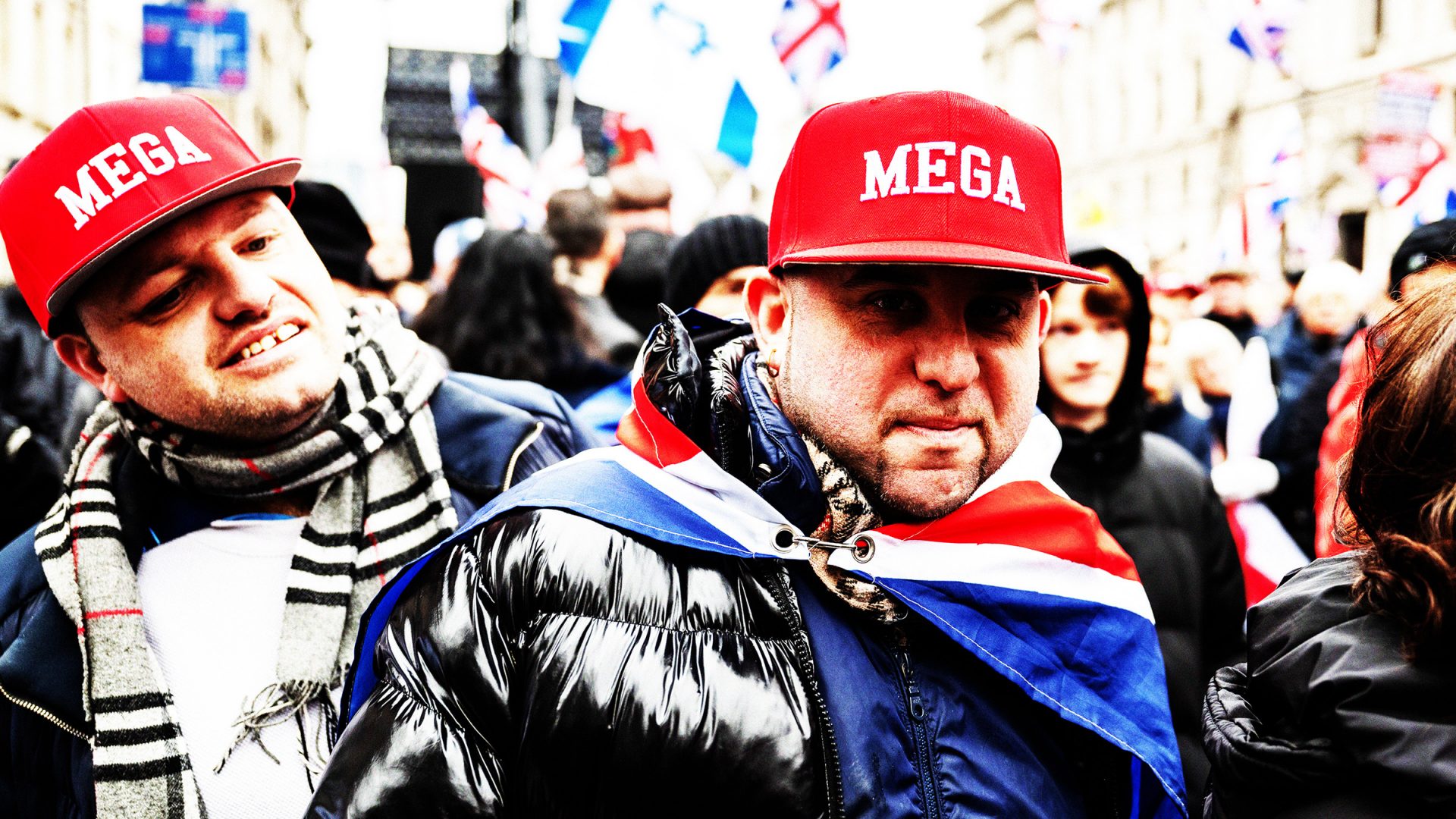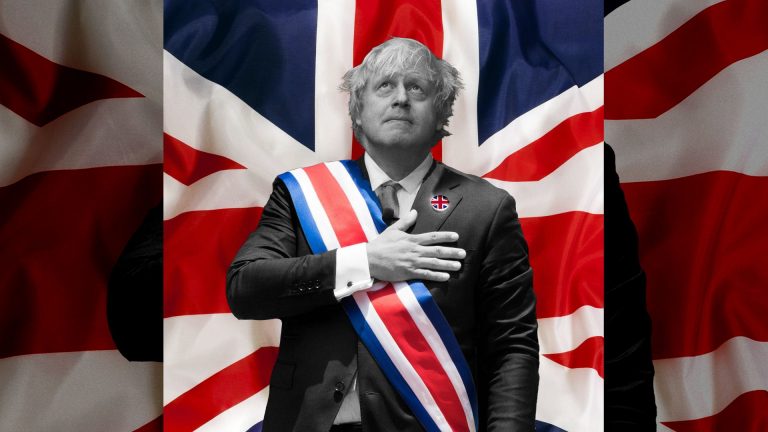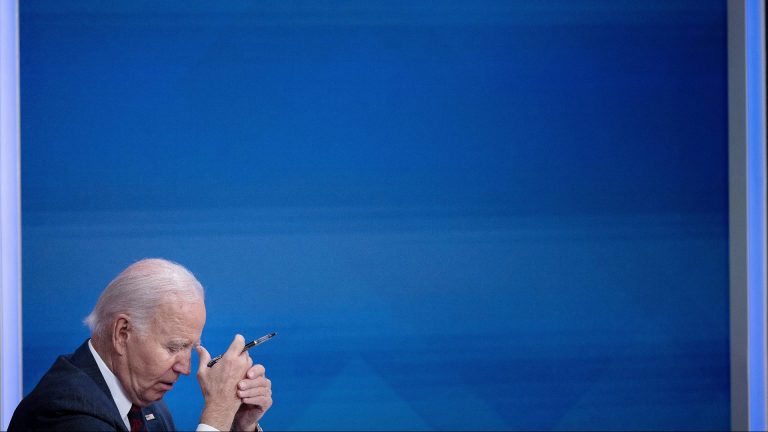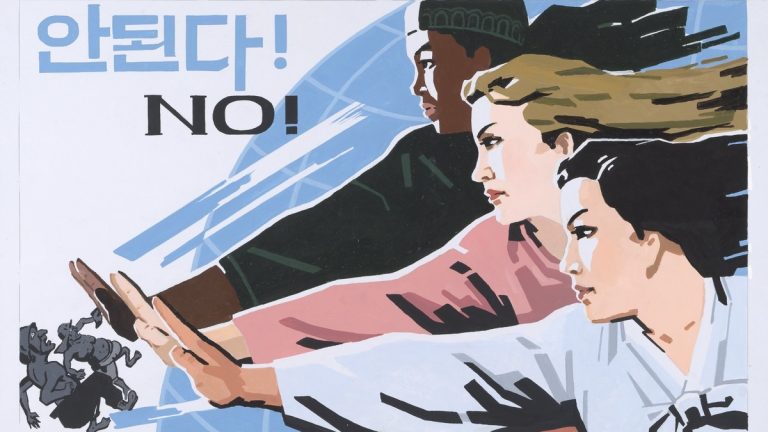Last Wednesday, three British neo-Nazis were convicted of planning to carry out a terrorist attack at mosques or synagogues as part of a “race war” – yet more evidence of a growing UK terror threat from far right extremists. If you missed the story, it may have been because you were distracted by rising temperatures in the country’s ongoing and increasingly feretic debate on migration. The verdicts came two days after prime minister Keir Starmer warned of Britain becoming “an island of strangers” if our immigration system was not reformed.
There is no single reason someone becomes an extremist – inequality, lack of economic opportunity, the dizzying pace of technological change, social atomisation and fragmentation, and cultural ennui can all push people to seek belonging, meaning and purpose on the far right. But our knowledge of history and the language used by prominent people can also be an influence.
Home Office data shows a steady increase since 2020 of UK prisoners in serving sentences for right wing terrorism offences. In the last 12 months, Tobias Gleed received five-and-a-half years for possessing and distributing terrorist material, while Gabriel Budasz got an extended sentence of 12 years’ imprisonment for extreme right wing material. Colin McNeil, who operated two websites that spread far-right propaganda and encouraged terrorism which featured documents, images and videos glorifying Hitler, the Nazis and Neo-Nazis, got seven years. His sites were cited as inspiration for Payton Gendron, who went on to murder 10 people in a mass shooting at a grocery shop in Buffalo in 2022.
Suggested Reading
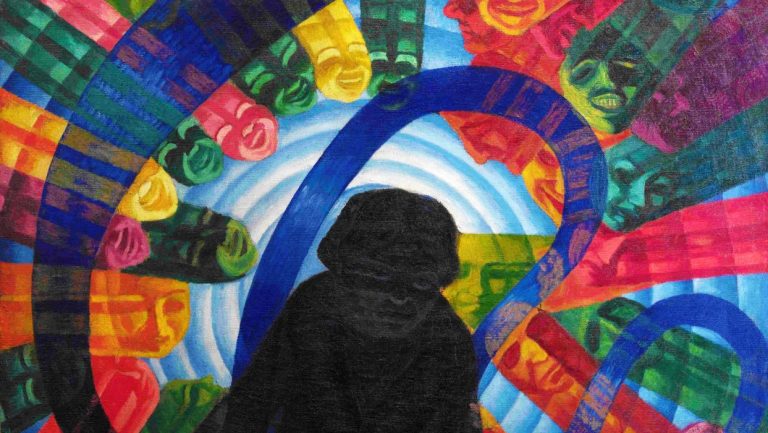
London’s visionaries and fascists
The three individuals now waiting to receive substantial jail terms when they are sentenced in July – Brogan Stewart, Marco Pitzettu, and Christopher Ringrose – were part of an online group that “idolised the Nazi regime”. They were convicted of planning an act of terrorism, as well as multiple terrorism and firearms offences (Ringrose was also charged with manufacturing a component for a 3D-printed firearm). The trio used a Telegram group called Einsatz 14, on which they discussed executing Rishi Sunak and torturing imams.
The number 14 is used by white supremacists as a reference to the so-called “14 Words”: “We must secure the existence of our people and a future for white children.” This slogan was coined by David Lane, a member of a US white supremacist called The Order, who were responsible for the 1984 assassination of Jewish radio host Alan Berg in Denver, Colorado. Lane died in prison in 2007, but remains an important ideologue of contemporary white supremacy.
Einsatz can be translated as “mission” or “commitment”; it is possible that the British group – none of whom exhibited notably high intelligence or deep historical knowledge at trial – used this German word and a significant right wing symbolic number without realising there was a real Einsatz 14.
The Einsatzgruppen were paramilitary Nazi death squads used to conduct mass murder in Poland, before being employed in the Soviet Union and elsewhere in eastern Europe. Einsatzgruppe H was a special task force created as part of the deport the German suppression of the Slovak National Uprising.
Einsatzkommando 14 or “Einsatz 14”, was one of its units which committed the two of the largest massacres in the history of Slovakia, at Kremnička and Nemecká, killing almost 2000 people connected to the uprising as well as Jews and Romani, including children. Despite attempts by far right parties in Slovenia to recast the uprising as a communist effort to suppress a nationalistic government, Einsatzkommando 14, were a murderous occupying force upholding a puppet regime and an active participant in genocide, who tried to hide their war crimes through the burning of corpses in lime kilns.
Even decades after their unspeakable crimes, it is hard to understand the attraction that vile murderers like these have for extremists who like to believe they are in some way defending Britain. Arguably our finest hour was when Churchill refused to make peace with a seemingly unstoppable Germany, whose blitzkrieg across western Europe had taken it to within 33 miles of silver sea from the English coast. It is bizarrely ironic that so-called British patriots idolise the enemy who their own country was engaged with at this precarious point.
As Britain stood defiantly alone, between 1940 and 1941, the government monitored the morale of the people and emphasised that the decision to fight on was one of principle, not just expediency. Britain was not only refusing subservience to a foreign power but was specifically refusing Nazi control. The government highlighted the national traits that made Britons the opposite of Nazis. It is sometimes easier to define yourself in opposition to what you are not.
Britain fought to protect the ideal of national self-determination for all nations (as it does in support of Ukraine now). It fought as a democracy to protect democratic and communitarian values not just of our own country but for all Europe. Instead of sympathising with Hitler’s ideas on racial purity, Britain fought as an asylum for oppressed racial minorities fleeing Europe across the channel by any means they could, and as a defender of equal civil rights for all citizens.
The very notion of fascism on these shores seemed to have been vanquish forever. Oswald Mosley’s British Union of Fascists had had their moment in the 1930s, when they claimed a membership of 50,000, held showy rallies and won the support of the Daily Mail’s owner, Lord Rothermere. But Mosley was interned soon after the start of the war and even when released, his apologies for Hitler made him a marginal figure.
By the time of Enoch Powell’s notorious “Rivers of Blood” speech in 1968, however, right wing politicians had begun to appeal to the spirit of 1940 in anti-immigrant campaigns. In the aftermath of Starmer’s “island of strangers” speech he was accused of using a near-echo of words used by Powell. Powell spoke of Britons who “found themselves made strangers in their own country”. The main focus of his speech was the introduction of the Race Relations Act which he strongly objected to. The Act prohibited discrimination on the grounds of race in certain areas of British life, particularly housing.
An uncomfortable and less reported fact is that three days after the speech, as the bill was being debated, 1,000 dockers marched on Westminster in support of Powell. Other mass demonstrations of working-class support, much of it from trade unionists followed. A Gallup poll showed that 74% of those asked agreed with his speech.
Powell claimed his speech was “going to go up ‘fizz’ like a rocket; but whereas all rockets fall to the earth, this one is going to stay up”. At a time of social and economic upheaval his words had an impact, stirring up an emotional response in many who had genuine grievances with how their society was changing.
The National Front (NF) had been founded the year before in 1967. It reached the height of its electoral support during the mid-1970s, when it was briefly England’s fourth-largest party in terms of vote share, peaking at the 1979 general election with 191,719 votes. It suffered a steep decline throughout the 1980s and 1990s, and saw a faction separate to form the British National Party (BNP), who were initially more focused on marches and rallies, creating the Combat 18 paramilitary—a coded reference to Hitler—to protect its events.
Both the NF and the BNP experienced a small increase in popularity at the polls in the 2000s after the massive spike in immigration caused by the Labour government’s decision to open the UK’s labour market up to the ten new states that joined the EU in 2004. At the time, the UK needed immigration to support a booming economy and believed other member states would adopt similar policies (only Ireland and Sweden did).
The increase in popularity was temporary as membership and vote share for both soon declined dramatically, with the BNP further splitting into groups including Britain First and National Action, and the English Defence League (EDL) replaced it as the foremost far right group. One of the main reasons for the drop in popularity was the rise of new, more socially palatable, anti-immigration parties.
The increased immigration of the 2000s provided an opportunity for the UK Independence Party (UKIP) – previously a single-issue Eurosceptic party – to fuse the separate issues of EU membership and immigration. In 2006, Nigel Farage assumed leadership and the party adopted a wider policy platform capitalising on concerns about rising immigration, suggesting the results of government policy were instead results of EU membership.
With UKIP gaining ground, David Cameron’s government believed adopting a hardline anti-immigration stance would boost Conservative votes. By 2012, the then home secretary Theresa May believed that the way to cut numbers coming to the UK “was to create here in Britain a really hostile environment for illegal migration”.
The “hostile environment” strategy came to encapsulate a broader attitude towards migrants in the UK, culminating with the Windrush scandal, when people, particularly those who had immigrated from Caribbean countries in response to UK’s call for migrants, were wrongly detained, denied legal rights, threatened with deportation, and in at least 83 cases wrongly deported by the Home Office.
The Conservatives seemingly learnt nothing from Windrush. In 2022, then home secretary, Suella Braverman used language commonly used by the far right when she spoke of, “stopping the invasion on our southern coast.” In 1940 the Dunkirk evacuation was planned from Dover Castle, which then played a key role defending Britain from the Nazis. In 2019, the Neo-Nazis in Britain First started beach patrols in Kent and in 2020, blocked the port of Dover. Later, they launched their own patrol boat, promising to stand firm “against the unprecedented invasion by economic migrants”.
The hostile environment strategy did not prevent significant breakthroughs for UKIP at the 2013 local elections, 2014 European parliamentary elections, and 2015 general election. After the 2016 Brexit referendum, Farage stepped down as leader, later joining the Brexit Party and then Reform. The constant shifting to the right on immigration by the Conservatives did not save them and has legitimised language that would have previously been a sacking offensive (as it was for Powell).
Data provided by advocacy group Hope not Hate has tracked a rise in anti-migrant demonstrations over the last few years, most notoriously in the aftermath of the 2024 Southport murders. These riots saw the continuation of a trend of attacking asylum centres, which can be traced back through Britain First’s attacks in 2020 on an hotel housing asylum seekers in Bromsgrove, weeks after Farage filmed in the town, as part of his tour of alleged refugee shelters across the country.
Farrage now claims to be the real opposition party to Starmer’s Labour. Multiple candidates that Reform put forward for local elections in May posted hate, pushed far-right conspiracies and praised extremists, including posts promoting the conspiracy theory that Muslims are seeking to “supplant the native population” in the UK. In recent days, Farage has been condemned after claiming some asylum seekers coming to the UK on small boats could be “Iranian terrorists” and again referred to an “invasion” of immigrants.
The rocket Powell fired is still up. Immigration matters to people as much now as it did at Powell’s time. The pros and cons need to be evaluated and debated, but we need to do so with responsible language and a historical appreciation of where certain ideologies can end up.
The perceived endorsement of anti-immigrant sentiment by politicians – now including the prime minister – has real-world impact. It emboldens those such as Stewart, Pitzettu, and Ringrose instead of setting them up as those we can all define ourselves in opposition to.
We should never forget our own history of such opposition to Nazism, an ideology that ends up with bodies in ovens. Our ancestors from throughout the Commonwealth gave their lives so it would remain a stranger to these islands. It is an ideology that is anti-British.

